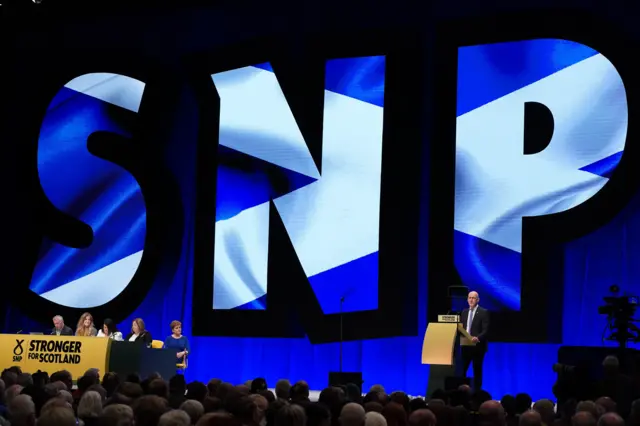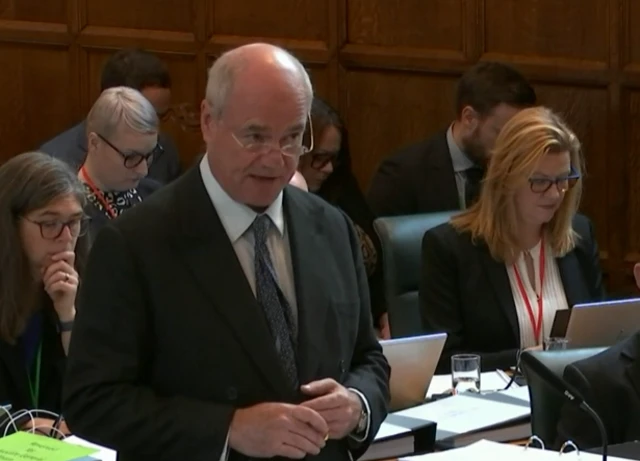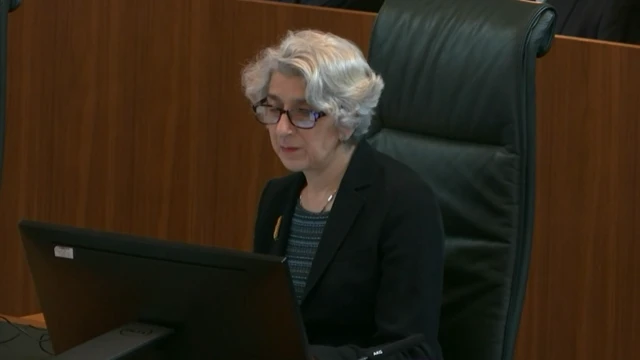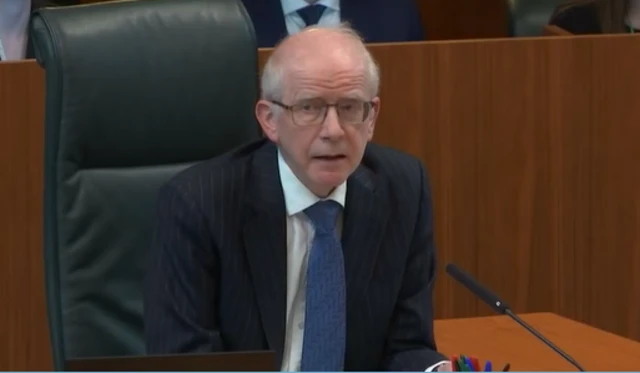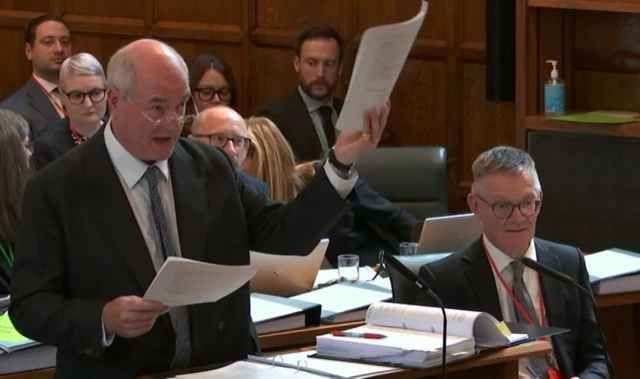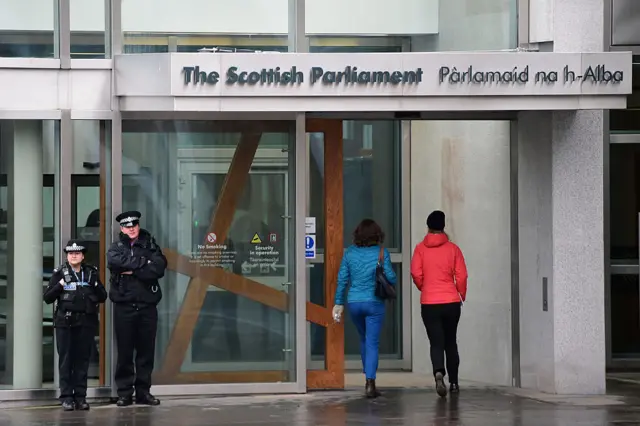
Is there a feeling of confidence on the UK side?published at 13:49 BST 12 October 2022
 Philip Sim
Philip Sim
BBC Scotland political correspondent, at the Supreme Court
It was striking how much more time the UK government side spent on trying to have the case thrown out, compared to a relatively brief section on whether the bill is legal.
Perhaps speaks to some confidence in their case, or maybe that the written arguments cover it well enough.
